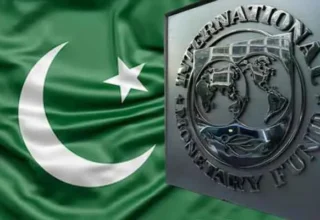
Pakistan has fulfilled a major requirement of the International Monetary Fund (IMF) by releasing the Governance and Corruption Diagnostic Assessment ahead of the IMF Executive Board meeting. The Finance Ministry’s detailed report underscores that corruption remains one of the biggest impediments to the country’s economic and social development.
The assessment highlights serious weaknesses in the tax system, public spending structure, accountability mechanisms, and judicial performance. It warns that powerful groups—often linked to government institutions—are responsible for the most damaging forms of corruption, causing long-term harm to national progress.
Despite repeated borrowing from the IMF, the report notes that fundamental structural problems remain unresolved. It states that Pakistan’s population continues to lag behind neighbouring countries in terms of living standards, mainly due to lack of transparency in government decision-making and the weak functioning of anti-corruption bodies.
According to the report, accountability remains inconsistent and often unfair, further eroding public trust in state institutions. The Finance Ministry stresses the need to modernise and empower agencies like the National Accountability Bureau (NAB). Implementing the recommended governance reforms could potentially raise Pakistan’s GDP by 5% to 6.5%, the report adds.
The assessment also reveals that stakeholder participation in economic policymaking is extremely limited. Weak governance structures, it says, create opportunities for corruption and hinder fair competition. About 11.1% of surveyed businesses identified corruption as their biggest challenge—significantly higher than the 7.4% South Asian regional average.
The report describes how ineffective public spending, low tax compliance, and declining trust in the judicial system continue to weigh down the economy. It further points to major gaps in regulatory oversight of state institutions, market regulation, and the banking sector. Complex business laws and cumbersome procedures are identified as key barriers to investment.
To address these issues, the Finance Ministry recommends transparent and clearly defined laws, improved access to public information, and streamlined regulatory processes. The report says excessive restrictions on foreign trade have hindered private sector performance, and calls for core reforms in trade rules, reduced government intervention, and expanded private-sector autonomy.
It also proposes establishing an open-data framework to improve public access to information, increasing citizen and business participation in policymaking, and fully digitising regulatory processes. Strengthening public-sector management and enhancing institutional efficiency are listed as essential components of the reform package.
According to the assessment, better governance would directly boost investment and significantly reduce corruption across the country.
The report is part of the IMF’s ongoing $7 billion loan programme, jointly reviewed over eight months by the IMF and the World Bank at Pakistan’s request. The findings note that recent government measures have helped stabilise the economy, including improvements in the primary surplus, foreign exchange reserves, and inflation levels.































